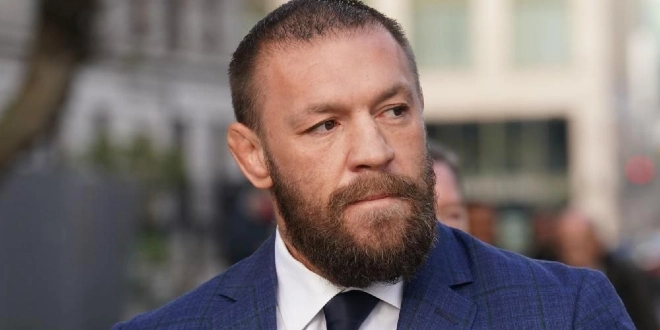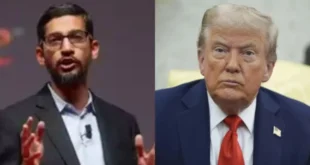The Irish Court of Appeal has chosen to forward key documents to the Director of Public Prosecutions in connection with Conor McGregor’s decision to retract a motion seeking to introduce additional evidence during his ongoing appeal. The material in question had the potential to cast doubt on the credibility of Nikita Hand, the complainant in a civil case in which McGregor was found liable for sexual assault.
Initially, McGregor’s legal representatives had planned to present statements from two individuals who were previously neighbors of Ms. Hand. The statements referenced an incident involving Ms. Hand and her former boyfriend on the night of 9 December 2018. The new information suggested a possible domestic altercation, which McGregor’s team argued could explain the injuries identified on Ms. Hand’s body.
However, the decision to pursue that line of evidence was ultimately reversed, and the court was informed that the defense would no longer proceed with the application. This reversal prompted further legal scrutiny, particularly in light of the claims’ implications for the integrity of Ms. Hand’s character and the judicial process overall.
Concerns Over Process Integrity and Legal Fallout
Senior counsel for the complainant raised concerns that the withdrawn evidence was initially intended to undermine Ms. Hand’s reputation. The counsel emphasized that withdrawing such a significant claim without allowing it to be properly contested in court deprived Ms. Hand of the opportunity to respond fully and transparently.
The court heard arguments that this move might amount to a deliberate manipulation of court procedure. As a result, one of the presiding judges noted that referring the documents to the Director of Public Prosecutions would be appropriate, allowing prosecutors to determine whether further action, such as a perjury investigation, is warranted.
The legal team representing McGregor objected to the characterization of the evidence and expressed concern that material which may be relevant in a criminal context was being introduced inappropriately within civil proceedings. They argued that any such claims should be handled outside the purview of an appeal court if they were to form the basis of a criminal allegation.
Despite these objections, the appeal court judges reviewed the documentation and announced their intention to formally refer selected parts of it to prosecutors, signaling their unease with how the matter had been handled.
Costs Appeal Raises Additional Legal Complexity
In a separate but related matter, the Court of Appeal considered the implications of a costs appeal involving James Lawrence, a friend of McGregor who had also faced allegations in the original civil trial. While the jury ultimately found that Lawrence had not committed sexual assault, the court had ruled that he was not entitled to have his legal costs reimbursed due to the nature of his defense.
Lawyers for Ms. Hand argued that awarding costs to Lawrence could effectively cancel out the damages granted by the jury. They contended that McGregor had funded Lawrence’s legal expenses, and if Lawrence were now to receive costs, McGregor would indirectly recover funds despite the jury’s decision against him.
The court was reminded that the jury appeared to have rejected Lawrence’s testimony regarding consent, which aligned closely with McGregor’s version of events. According to previous rulings, both men had presented coordinated defenses, and the jury’s findings seemed to dismiss their explanations.
Nonetheless, Lawrence’s counsel maintained that his client had successfully defended himself in court and should therefore be awarded costs in line with the established legal principle that the prevailing party in litigation is typically entitled to recover their expenses. The lawyer also challenged the trial judge’s interpretation of the jury’s decision, calling it speculative and procedurally flawed.
He further argued that the trial judge should not have attempted to interpret the reasoning behind the jury’s verdict when determining costs. Instead, any ambiguity regarding the verdict should have been addressed at the time when the jury’s issue paper — the document outlining the specific legal questions being considered — was being reviewed.
 The Daily Star Ireland
The Daily Star Ireland



